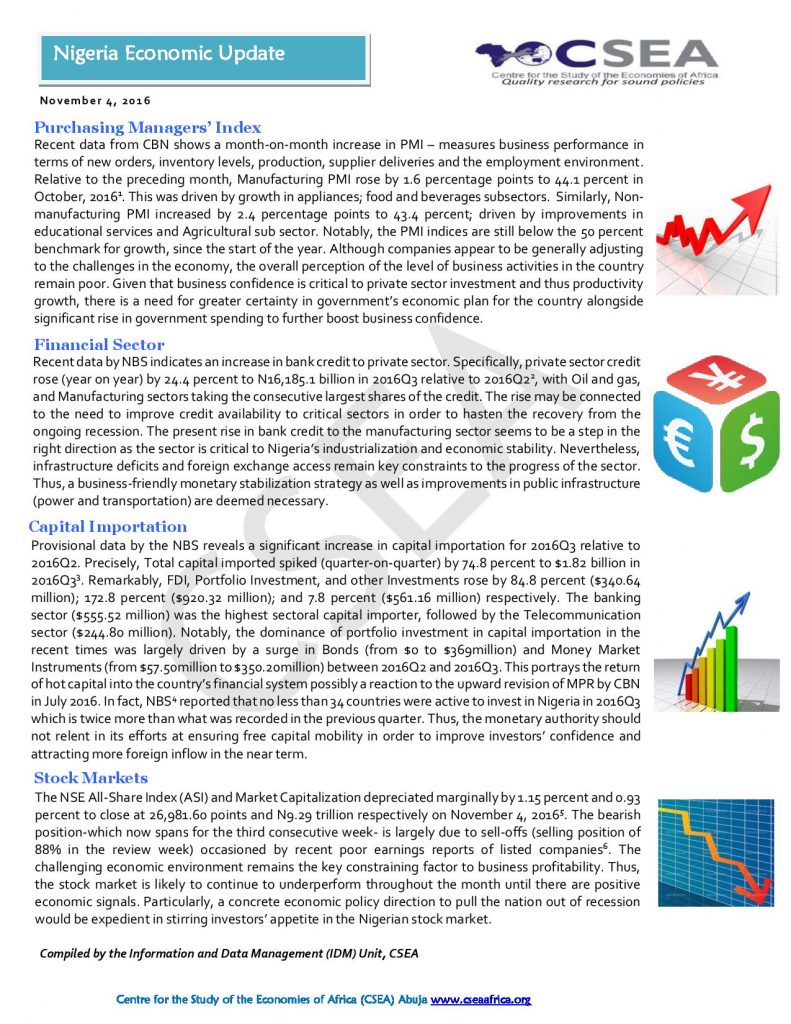Macroeconomic Report & Economic Updates

November 15, 2016
Nigeria Economic Update (Issue 47)
Recent
data by NBS indicates an increase in bank credit to private sector. Specifically,
private sector credit rose (year on year) by 24.4 percent to N16,185.1 billion
in 2016Q3 relative to 2016Q2, with Oil and gas, and Manufacturing
sectors taking the consecutive largest shares of the credit. The rise may be connected
to the need to improve credit availability to critical sectors in order to
hasten the recovery from the ongoing recession. The present rise in bank credit
to the manufacturing sector seems to be a step in the right direction as the
sector is critical to Nigerias industrialization and economic stability.
